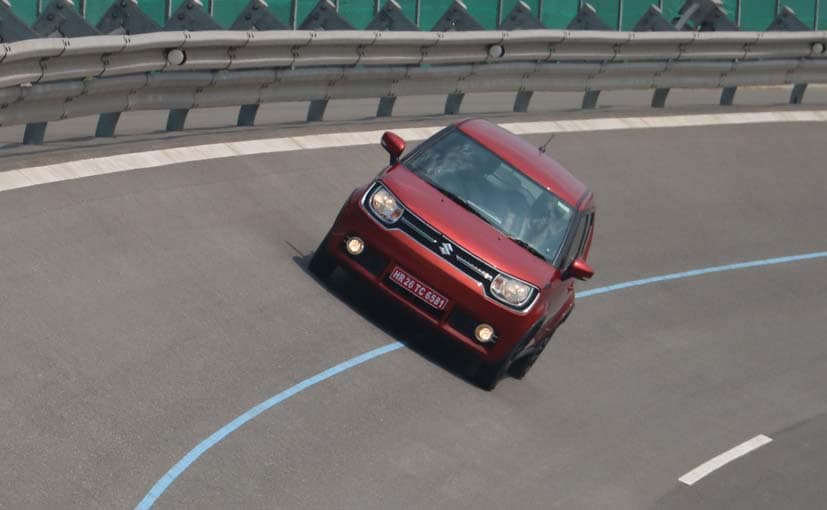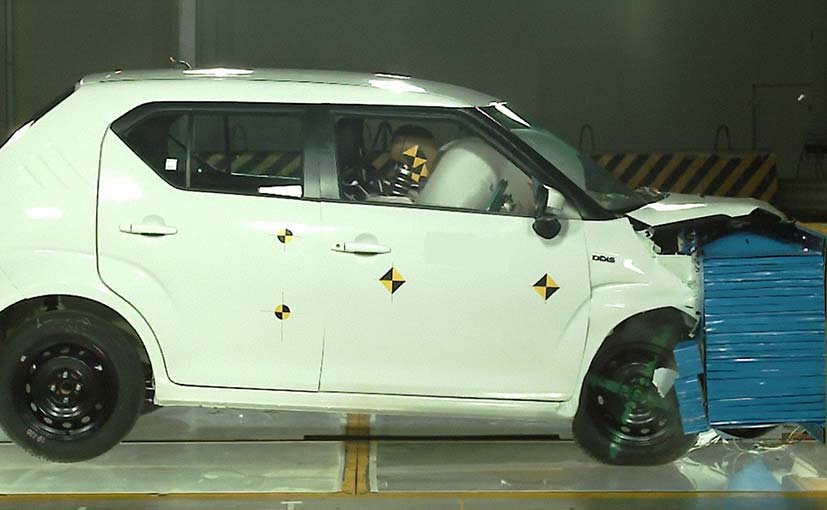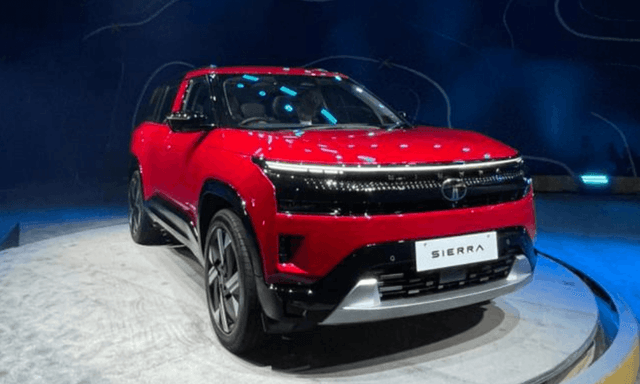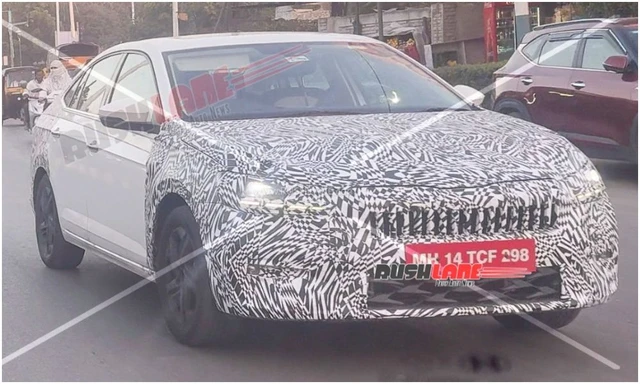Maruti Suzuki's Rohtak Test Facility Will Help Build Global Products
car&bike Team
1 min read
Feb 22, 2017, 06:40 PM

Key Highlights
- Maruti's Rohtak facility will be fully operational by 2019
- Each vehicle has undergone 35-40 tests in 3 to 4 years of development
- Maruti''s facility will help churn out products for glolobal markets
Maruti Suzuki is entering a new phase of product development or should we say has already entered that stage. We've already told you about the significant investment the company has made in its R&D facility at Rohtak and with a total project investment of Rs. 3800 crore, it's poised to become one of the most advanced R&D facilities in India and amongst the top facilities in Asia. While the facility is already functional, it will be fully operational by 2019. Interestingly, the company is putting this facility to good use to make sure it adheres to the deadline for safety norms for cars which will come into effect in 2019.
If you didn't know already, the Vitara Brezza, which was launched last year in India and was instantly successful (the pending orders tell the story) was designed and developed in India and the facilities of the Rohtak facility enabled it to do so. Spread over a 600-acre campus, the R&D Centre has a state-of-the-art vehicle testing and evaluation labs, besides a world class proving ground with 31 unique test tracks that traverse over 31 kilometers replicating real life terrains. This helps the company understand and test various aspects of the car it's developing and the Vitara Brezza is a great example.
Frankly, Indian-made cars have not fared well in crash tests and we've done an exclusive on this. The Global N-CAP results have shown that cars are unsafe and even the Swift had to face this result. We've already told you about how crash tests will be mandatory in India from the 1st of October 2017 and the guidelines have already been laid for it. Maruti Suzuki is prepping for just that and it's way ahead on this front compared to competitors.
 The Vitara Brezza is the first vehicle in India to be certified for offset and side impact crashes, much ahead of the advanced safety regulations to be mandated by the government in India. Vitara Brezza was certified by the homologation agency before its launch in March 2016, well before the advanced regulations come into effect in India.
The Vitara Brezza is the first vehicle in India to be certified for offset and side impact crashes, much ahead of the advanced safety regulations to be mandated by the government in India. Vitara Brezza was certified by the homologation agency before its launch in March 2016, well before the advanced regulations come into effect in India.
Even the recently launched Ignis offers all advanced safety before regulations are introduced in India. Just like the Vitara Brezza, the Ignis was also tested and evaluated at the crash labs and proving ground at the R&D Centre at Rohtak. According to the company all variants of the Ignis were officially certified for all advanced safety norms on offset, side impact and pedestrian safety.
 The same applies to the Baleno and we've heard so much about structural rigidity and advanced safety for occupants when the company launched the car in India. In fact, the R&D teams at MSIL and Suzuki, Japan worked together to develop the 5th generation vehicle platform called Total Effective Control Technology (TECT) and the Baleno is a great example of it and we've said that in our review too.
The same applies to the Baleno and we've heard so much about structural rigidity and advanced safety for occupants when the company launched the car in India. In fact, the R&D teams at MSIL and Suzuki, Japan worked together to develop the 5th generation vehicle platform called Total Effective Control Technology (TECT) and the Baleno is a great example of it and we've said that in our review too.
 While one might think that it's only the recently launched cars that have been developed keeping regulations in mind, well, in the last few months, Maruti Suzuki models S-Cross, Ciaz, and Ertiga have been tested and certified by official homologation agencies for advanced safety regulations on offset, side impact and pedestrian safety.
While one might think that it's only the recently launched cars that have been developed keeping regulations in mind, well, in the last few months, Maruti Suzuki models S-Cross, Ciaz, and Ertiga have been tested and certified by official homologation agencies for advanced safety regulations on offset, side impact and pedestrian safety.
Each of these vehicles has undergone 35-40 tests during design and development over 3-4 years. According to the folks at Maruti Suzuki, about 75-80 per cent of cars in its portfolio would become compliant to these norms, about a year ahead of them becoming mandatory in India.
If you didn't know already, the Vitara Brezza, which was launched last year in India and was instantly successful (the pending orders tell the story) was designed and developed in India and the facilities of the Rohtak facility enabled it to do so. Spread over a 600-acre campus, the R&D Centre has a state-of-the-art vehicle testing and evaluation labs, besides a world class proving ground with 31 unique test tracks that traverse over 31 kilometers replicating real life terrains. This helps the company understand and test various aspects of the car it's developing and the Vitara Brezza is a great example.
Frankly, Indian-made cars have not fared well in crash tests and we've done an exclusive on this. The Global N-CAP results have shown that cars are unsafe and even the Swift had to face this result. We've already told you about how crash tests will be mandatory in India from the 1st of October 2017 and the guidelines have already been laid for it. Maruti Suzuki is prepping for just that and it's way ahead on this front compared to competitors.

The various crash dunmmies used at the facility
Even the recently launched Ignis offers all advanced safety before regulations are introduced in India. Just like the Vitara Brezza, the Ignis was also tested and evaluated at the crash labs and proving ground at the R&D Centre at Rohtak. According to the company all variants of the Ignis were officially certified for all advanced safety norms on offset, side impact and pedestrian safety.

The Ignis undergoes crash testing at the facility

Pedestrian and occupant safety is at the helm of these tests
Each of these vehicles has undergone 35-40 tests during design and development over 3-4 years. According to the folks at Maruti Suzuki, about 75-80 per cent of cars in its portfolio would become compliant to these norms, about a year ahead of them becoming mandatory in India.
Trending News
Latest News
 car&bike Team | Dec 14, 2025Top-Spec Tata Sierra Accomplished, Accomplished+ Prices RevealedRegardless of the powertrain combination chosen, all Tata Sierra Accomplished+ trims cost upwards of Rs 20 lakh (ex-showroom).2 mins read
car&bike Team | Dec 14, 2025Top-Spec Tata Sierra Accomplished, Accomplished+ Prices RevealedRegardless of the powertrain combination chosen, all Tata Sierra Accomplished+ trims cost upwards of Rs 20 lakh (ex-showroom).2 mins read car&bike Team | Dec 13, 2025Skoda Slavia Facelift Spied Testing Again Ahead Of DebutThe facelifted Slavia is expected to debut in 2026 as Skoda-VW India looks to refresh its India 2.0 range.1 min read
car&bike Team | Dec 13, 2025Skoda Slavia Facelift Spied Testing Again Ahead Of DebutThe facelifted Slavia is expected to debut in 2026 as Skoda-VW India looks to refresh its India 2.0 range.1 min read car&bike Team | Dec 13, 20252026 MG Hector Facelift Interior Previewed Ahead Of DebutLatest teaser video of the upcoming Hector facelift suggests minimal cosmetic changes to the interior as well as reveals a new alloy-wheel design.1 min read
car&bike Team | Dec 13, 20252026 MG Hector Facelift Interior Previewed Ahead Of DebutLatest teaser video of the upcoming Hector facelift suggests minimal cosmetic changes to the interior as well as reveals a new alloy-wheel design.1 min read Jaiveer Mehra | Dec 13, 2025Passenger Vehicle, Two-Wheeler Sales Surge In November 2025: SIAMBoth segments reported a growth in the region of 20 per cent, though year-to-date sales growth in FY2026 was notably flatter at around 3 per cent.1 min read
Jaiveer Mehra | Dec 13, 2025Passenger Vehicle, Two-Wheeler Sales Surge In November 2025: SIAMBoth segments reported a growth in the region of 20 per cent, though year-to-date sales growth in FY2026 was notably flatter at around 3 per cent.1 min read car&bike Team | Dec 12, 2025Nissan Entry MPV Design To Be Unveiled On December 18New MPV to be the first of three new models for India by Nissan, alongside the Tekton and a three-row SUV.1 min read
car&bike Team | Dec 12, 2025Nissan Entry MPV Design To Be Unveiled On December 18New MPV to be the first of three new models for India by Nissan, alongside the Tekton and a three-row SUV.1 min read Jaiveer Mehra | Dec 12, 2025New Mini Convertible Launched At Rs 58.50 LakhDrop-top variant of the iconic Cooper hatchback available in a single Cooper S spec.1 min read
Jaiveer Mehra | Dec 12, 2025New Mini Convertible Launched At Rs 58.50 LakhDrop-top variant of the iconic Cooper hatchback available in a single Cooper S spec.1 min read
 Janak Sorap | Dec 11, 2025Harley-Davidson X440 T First Ride Review: Smarter and SharperHarley-Davidson has taken the X440 and given it a more focused and engaging twist. The result is the X440 T—essentially the same platform but updated in areas that give the motorcycle more appeal and riders more thrill.5 mins read
Janak Sorap | Dec 11, 2025Harley-Davidson X440 T First Ride Review: Smarter and SharperHarley-Davidson has taken the X440 and given it a more focused and engaging twist. The result is the X440 T—essentially the same platform but updated in areas that give the motorcycle more appeal and riders more thrill.5 mins read Shams Raza Naqvi | Dec 10, 20252025 Mini Cooper Convertible Review: More Colour On Indian RoadsThe updated Mini Cooper Convertible is set to be launched in the Indian market in the next few days. We drive it around Jaisalmer for a quick review.1 min read
Shams Raza Naqvi | Dec 10, 20252025 Mini Cooper Convertible Review: More Colour On Indian RoadsThe updated Mini Cooper Convertible is set to be launched in the Indian market in the next few days. We drive it around Jaisalmer for a quick review.1 min read Bilal Firfiray | Dec 8, 2025Tata Sierra Review: India’s New Favourite?Marking its return after a few decades, the reborn Sierra has made everyone sit up and take notice. But is it worth the hype?10 mins read
Bilal Firfiray | Dec 8, 2025Tata Sierra Review: India’s New Favourite?Marking its return after a few decades, the reborn Sierra has made everyone sit up and take notice. But is it worth the hype?10 mins read Girish Karkera | Dec 4, 20252026 Honda Prelude First Drive: Domesticated Civic Type RA sporty-looking coupe built to give customers a taste of performance but not at the expense of everyday practicality.5 mins read
Girish Karkera | Dec 4, 20252026 Honda Prelude First Drive: Domesticated Civic Type RA sporty-looking coupe built to give customers a taste of performance but not at the expense of everyday practicality.5 mins read Seshan Vijayraghvan | Nov 29, 2025Mahindra XEV 9S First Drive Review: Big Electric SUV, Bigger ExpectationsThe XEV 9S lands at a time when the EV crowd is growing fast. It’s a big, born-electric, three-row SUV that starts under 20 lakh. It sits close to the XUV700 in size, but the brief is very different. Here’s what it’s like on the road.11 mins read
Seshan Vijayraghvan | Nov 29, 2025Mahindra XEV 9S First Drive Review: Big Electric SUV, Bigger ExpectationsThe XEV 9S lands at a time when the EV crowd is growing fast. It’s a big, born-electric, three-row SUV that starts under 20 lakh. It sits close to the XUV700 in size, but the brief is very different. Here’s what it’s like on the road.11 mins read



















































































































































